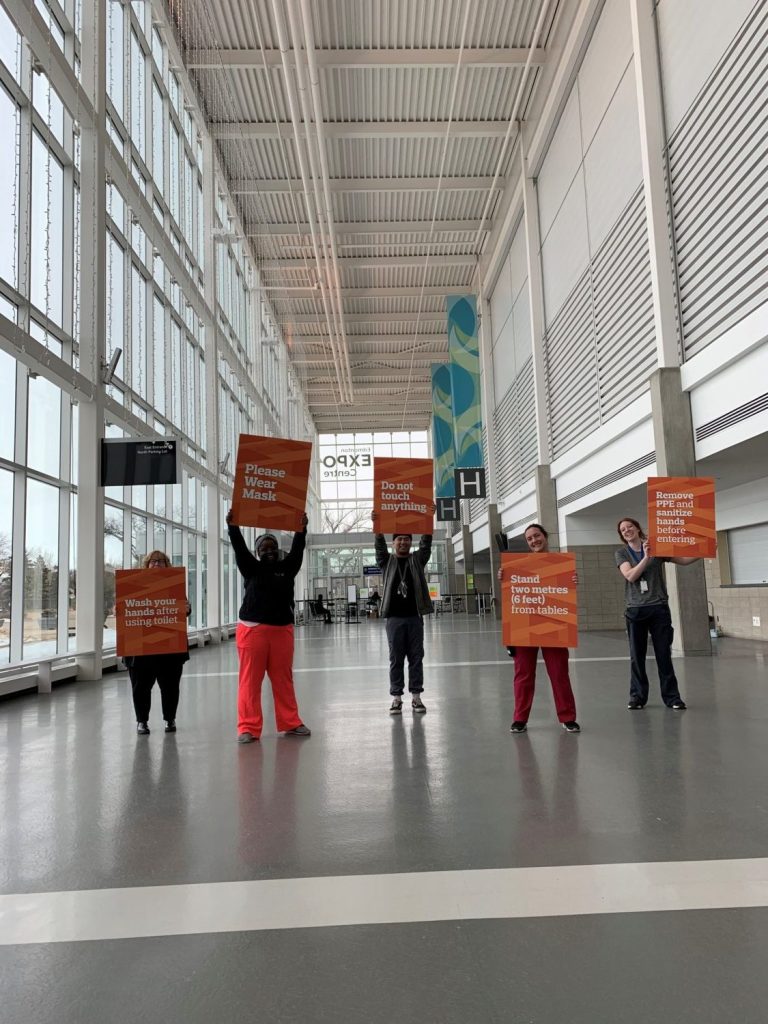Since COVID-19 hit Canada this spring, most of us have done what the Government of Canada asked of us, and avoided leaving the four walls of our homes. At home, many of us can work remotely, order groceries online, and binge-watch Netflix to our heart’s content.
But for those without stable housing, social isolating isn’t so simple.
“The clients we have don’t have the option to just stay home,” said Jackie Liu, Director of Operations for the Boyle McCauley Health Centre (BMHC) in Edmonton. Not only are folks sleeping head-to-toe with the other clients in shelters, but they’re forced to interact with others daily to access basic services. “You can’t socially isolate if you’re in a communal food line or going to the pharmacy every day to get meds,” Liu points out.
On top of this, COVID-19 has made it harder for clients to access these services. Mandatory health screenings by service providers mean that anyone with symptoms of COVID-19 or potential exposure to the virus are turned away — even from shelters.
Realizing the risks to this vulnerable population, Alberta Health Services deputized BMHC and several other organizations to set up an isolation shelter practically overnight. In mid-March, they opened a centre at the Edmonton EXPO facility, offering COVID-19 screening and beds for folks with coronavirus or awaiting test results. The shelter has also been offering in-house services to meet the population’s other needs, including food, showers, and medication.
In August, the isolation shelter moved to a southside hotel, where it continues to serve those who cannot stay at inner-city shelters. Government funding is covering the basic costs of the shelter, but not the comforts that make a person’s living environment bearable.
In mid-June, Edmonton Community Foundation (ECF) issued a $71,000 grant to the Isolation Shelter via the Government of Canada’s Emergency Community Support Fund. The grant allows the shelter to purchase everything from personal hygiene products to reading materials to craft materials — small, but necessary, comforts to boost the mental health of clients and make it easier for them to stick around for the entire quarantine period.
“It’s the government’s responsibility to provide funding to support the isolation shelter and that’s something we would not be able to replace. However, we were happy to support items to make isolation more comfortable and bearable for the people who need it,” Craig Stumpf-Allen, ECF’s Director of Grants and Community Engagement said.
That’s key for ensuring vulnerable Edmontonians commit to taking proper precautions.
“It’s helping people actually stay in isolation,” Liu said. “That’s the goal of everything.”
Learn more about ECF’s response to the COVID-19 pandemic here.
